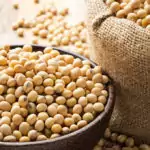PCOS test is based on the Rotterdam criteria for diagnosing PCOS.

Hypothyroidism
Goitrogens is a familiar term for patients suffering from goiter or abnormal growth of thyroid hormones. For those who don’t, they are substances that disrupt the production of thyroid hormone. They do so by creating problems in the absorption of iodine in the thyroid gland.
Too much of goitrogens in your system can create a disorder in your thyroid gland. The thyroid gland grows more cells to compensate for inadequate hormone production. Eventually, this leads to goiter. Excess goitrogens also restrict the production of hormones that are responsible for controlling metabolism.
However, contrary to common belief, consumption of goitrogenic foods is not the most common cause of goiter. Thyroid patients are often recommended to consume goitrogenic foods, because these foods are rich in vitamins and minerals.
The key is to eat these foods in the right way rather than avoiding them completely. We have included below a list of goitrogenic foods. Cooking, steaming or fermentation of these foods can lessen their goitrogenic properties to a large extent, while also giving health benefits.
Soy is another product to be consumed with caution. Cooking soy partially reduces its goitrogenic activity. So, it’s advisable to opt for fermented or cultured soy products such as miso, soy sauce etc. Whole soybean foods such as tofu should be consumed only after steaming or cooking.
Having goitrogenic foods in minimal doses (after steaming or cooking) would mean you are not entirely deprived of the nutrients in them. Also, this way, their goitrogenic activity may be minimal or nil, so it won’t be enough to harm you. Many of the goitrogenic foods are highly beneficial and nutritional to the body, especially the ones rich in phytochemicals (except in the case of auto-immune syndrome). So it is advisable to have them in adequate doses.
https://www.nrv.gov.au/nutrients/iodine
https://lpi.oregonstate.edu/mic/minerals/iodine
https://medlineplus.gov/ency/article/001178.htm